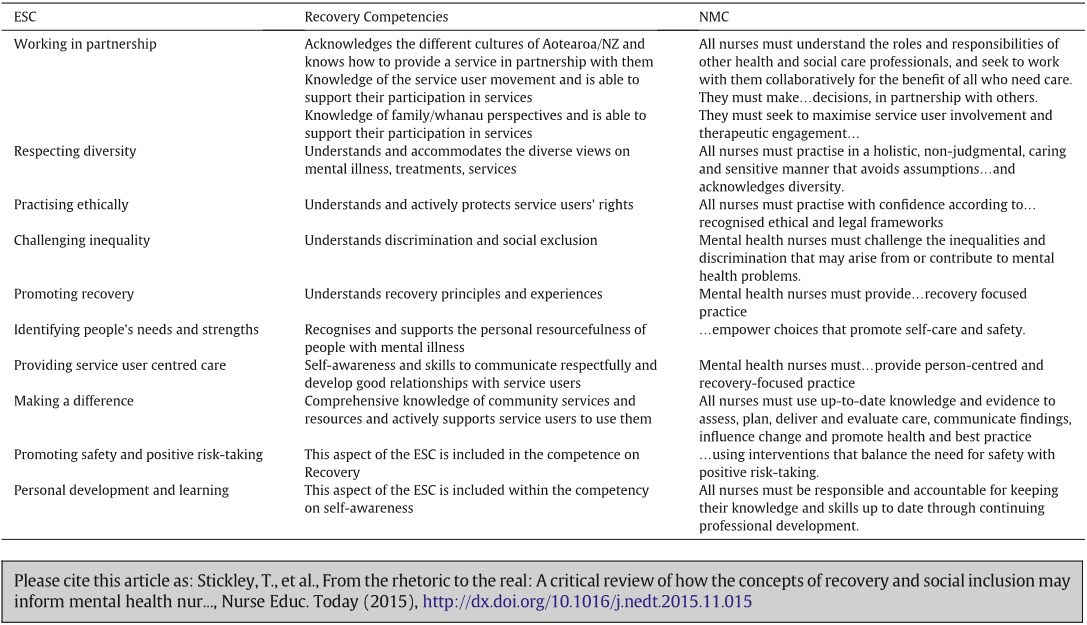Q2. Why do the authors focus on the concept of emotional intelligence?
The authors have chosen to focus upon the concept of emotional intelligence because recovery and social inclusion principles are values-based and as such, have an emotional component.
Q3. What is the definition of social inclusion for people with mental health problems?
One often cited definition of social inclusion for people with mental health problems is:‘A virtuous circle of improved rights of access to the social and economic world, new opportunities, recovery of status and meaning, and reduced impact of disability.
Q4. What is the main argument of Freshwater and Stickley?
Freshwater and Stickley (2004) argued that nurse education has drifted towards an essentialist focus becoming too aligned to positivist outcomes.
Q5. What is the second area for the potential use of narrative to promote emotional intelligence?
The second area for the potential use of narrative to promote emotional intelligence might be to challenge students' unconscious stigmatising attitudes (O'Reilly et al., 2012).
Q6. How many languages were used in the study?
Their research team comprised academics from five European countries and whilst the majority of published articles were in the English language, the authors were also able to review articles in a number of European languages.
Q7. What is the purpose of this review?
This critical review addresses the question of how the concepts of recovery and social inclusion may inform mental health nurse education curricula at Master's level in order to bring about significant and positive change to practice.
Q8. What is the purpose of the European Qualifications Framework?
This acts as “a translation device to make national qualifications more readable across Europe, promoting workers' and learners' mobility between countries and facilitating their lifelong learning.” (EQF, 2015:4).
Q9. What is the definition of a recovery-based relationship?
A recovery-based relationship therefore is one that is characterised more by listening and understanding than by coercing and treating.
Q10. What is the definition of social inclusion in the UK?
In Europe, notably between 1970s and the 1990s theorists and politicians promoted the concept of social inclusion and exclusion and these concepts became enshrined in European policies.
Q11. What is the definition of a c inform mental health nur?
They propose an education that is transformatory in essence that is based upon reflective practice,Please cite this article as: Stickley, T., et al., From the rhetoric to the real: A c inform mental health nur..., Nurse Educ. Today (2015), http://dx.doi.org/1engagement through the arts and humanities and an education that listens to the voices of those who use health services in order to engender emotional engagement and learning amongst students.
